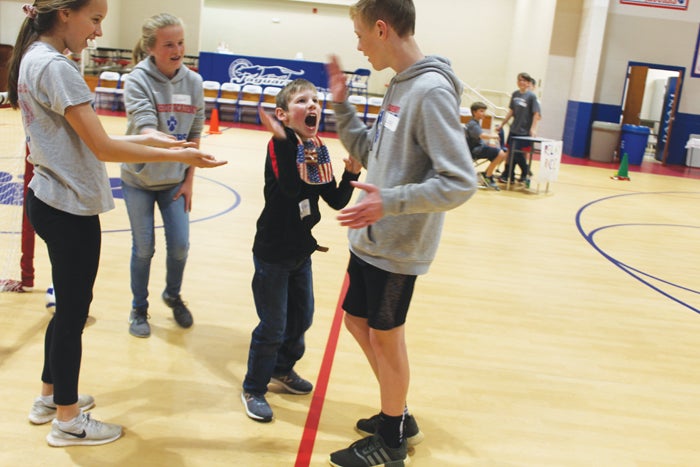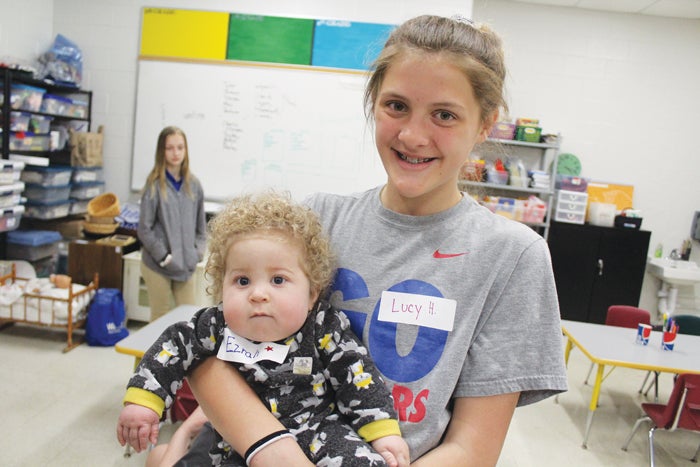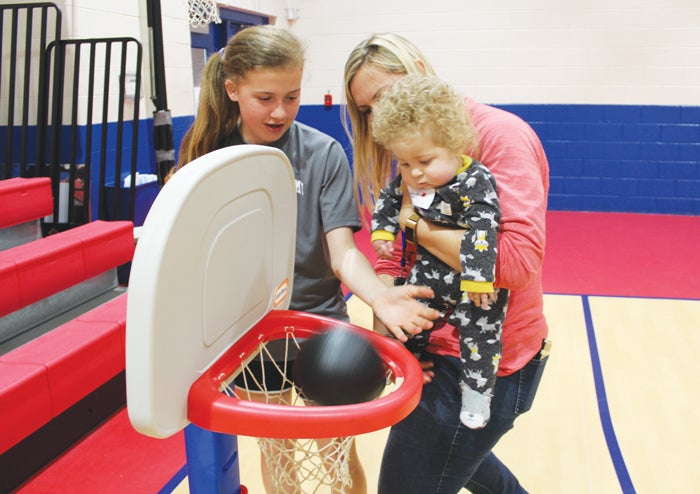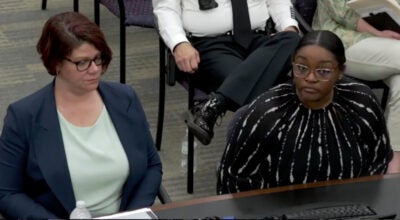‘We Are Able’: Students hold day camp for special-needs kids
Published 12:00 am Thursday, April 11, 2019
SALISBURY — Decked out in a green, frog-themed raincoat, 8-year-old Bradley Barlow entered the halls of Salisbury Academy last Friday clutching his mother’s hand tightly.
Quiet and wide-eyed, he approached a waiting welcome desk just paces from entrance. And he was greeted with multiple smiles.
Those greeting him were students Lucy Heilig, Maggie Antosek, Elizabeth Applewhite, Emmaline Goodnight and Izzy Banish, the group responsible for the day’s activity: “We Are Able,” a day camp for area children with special needs.
As Bradley’s mother, Crystal, released his hand to sign him in, Elizabeth leaned close and rattled off the waiting, fun-filled activities through the school’s gymnasium, classrooms and halls. There was dancing and karaoke, bowling, cookie decorating, basketball, soccer, relay races, arts and crafts, storytelling and more.
The information was enough to erase any lingering apprehension in Bradley, and he was quickly off making the rounds. The first stop? Cookie decorating, of course.
According to middle school science teacher Shea Overcash, “We Are Able” was the culmination of a third-quarter project in Salisbury Academy’s inaugural “Genius Hour” exploratory class. “Genius Hour” allows students to explore and create around their own passions.
“My hope was to inspire the middle schoolers to think big, dig deep within themselves, and help them feel like they could make a difference in the world,” she said. “I told them although sometimes their ideas may feel small, they have a big place in this world and have the ability to make a powerful and positive impact on the world.”
At the beginning of the class, Overcash tasked students to narrow it down their to one true passion, but she quickly noticed a recurring theme. Lucy, Maggie, Elizabeth, Emmaline and Izzy each listed a desire to help those with special needs.
“We thought no kid deserved not to have the same advantages and lifestyle as other kids,” said Emmaline.
After brainstorming how to provide these advantages, the group fell upon an idea: a camp where they could work with the children directly, offering school-aged favorites that would allow participants to “just be a kid,” said Izzy.
So the group reached out to Footprints in the Community, a nonprofit organization that helps connect families of special needs children to accessible camps and activities. Ashley Deaton, an area therapist and Footprints liaison, helped the students spread the word.
Deaton then helped the students formulate the day’s activities, taking care to include modifications to keep all of them accessible: a PVC ramp to help those in wheelchairs bowl, voice guides at the soccer net for those with visual impairments and more.
“I just really love helping kids, and I think they’re so sweet,” said Elizabeth. “I feel like maybe we need some more activities where they can be included in.”
Lindsay Ladue, mother of 8-month-old Ezrah, said the camp was “fantastic.”
“We love doing stuff like this, to get out into the public and get to know people,” Ladue said. “It’s good for social skills.”
But according to Crystal Barlow, camps and activities like “We Are Able” are just as beneficial for student volunteers and organizers.
“I think all kids need the opportunity to see and interact with ‘nontypical’ kids,” she said. “They need to see that they can do things, that they’re just like everyone else.”
Barlow said Rowan County is lacking compared to neighboring Cabarrus County when it comes to opportunities for Bradley and other children with special needs. Her family had to travel in order for Bradley to swim with a Special Olympics group.
“He loves to interact,” she said with a smile as she watched Bradley line up another shot at a soccer goal. “He’s my people person, my bossy person.”
For Lucy, the choice for “one true passion” was easy: “I think we all really we like helping people and we all really like kids.”
Maggie, whose younger brother Marshall has his own unique needs, agreed.
“I really love helping kids with special needs,” she said. “I like when they get more out of the house or their school and meet other kids and interact more.”
Overcash said the students were thrilled with the turnout at their camp, and that campers expressed their satisfaction with its inclusivity.
“You just don’t realize when you’re planning what a true impact it will make,” she said.
More than that, the selfless, community-serving design of the Genius Hour project illustrated a strength in each student.
“A lot of middle schoolers make their world about them and that is developmentally appropriate, but they all turned their projects into helping others, which I think is amazing for middle school minds,” said Overcash. “Through this experience, I hoped that I would inspire the children, but in turn, they have inspired me far beyond what I imagined.”






